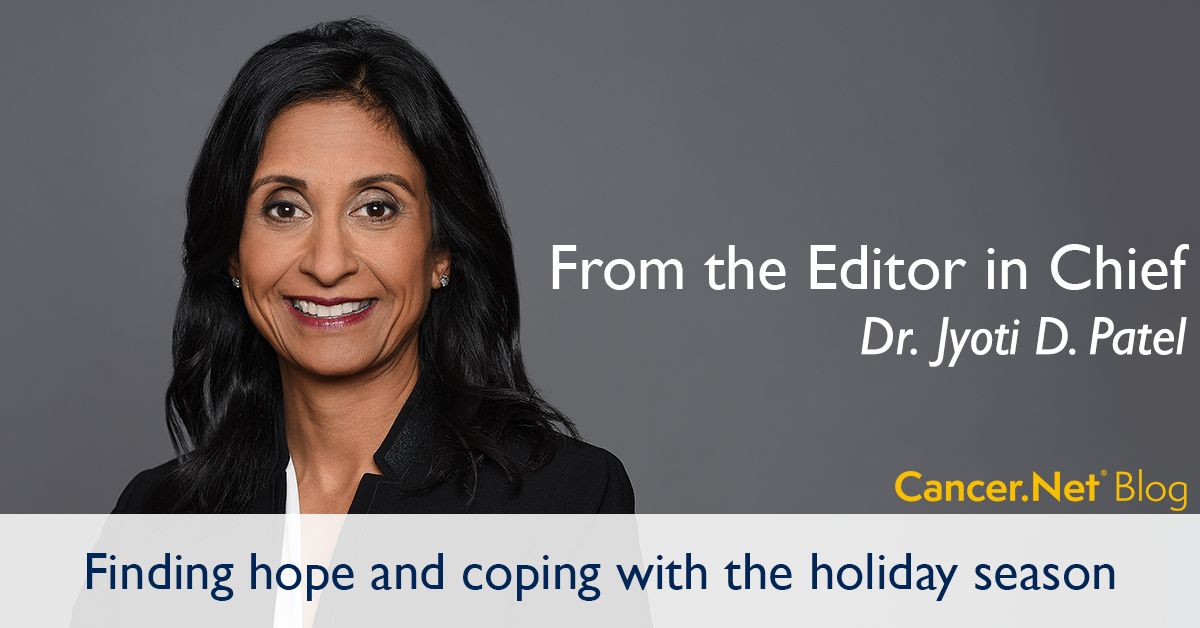
The holiday season is a time when families and friends come together to celebrate and cherish the warmth of love, gratitude, and joy. However, when a loved one has advanced cancer, the holiday season can bring mixed emotions. Families and friends must balance the desire to create lasting memories with concerns about care, support, and grief. Being honest, recalibrating traditions, and focusing on what is possible, instead of what is lost, can help people with cancer and their loved ones create special and lasting memories past the holidays.
Here are some strategies for caregivers and patients to manage the holiday season.
-
Embrace honest and open communication. Be honest when discussing what kind of holiday experiences are most meaningful. Discussing wishes, limitations, and expectations regarding holiday traditions and celebrations is the foundation of shared understanding. Acknowledging serious illness and what that means for the family is also important. Clarifying these needs helps others create supportive environments that respect boundaries but still allow space for connection and inclusion.
-
Make new traditions. Adapting holiday activities to your loved one’s energy levels and comfort can help them participate without feeling overwhelmed. Simplifying some traditions to make them more accessible might include adjusting timing to accommodate daily schedules or changing locations to make them more intimate.
-
Foster emotional connection. Spending time with someone with advanced cancer can be invaluable. Create opportunities for emotional connections, such as reminiscing about cherished memories, sharing stories, or engaging in activities that bring joy. These experiences, such as looking at photo albums together, taking a walk to see Christmas lights, or enjoying a cookie exchange, can create memories that last and help make the holidays a time of emotional healing and strength.
-
Allow room for contribution. Help someone with advanced cancer to feel a sense of normalcy when possible. Continuing to participate in holiday activities can be an important way to cope with cancer during the holidays. Find ways to help your loved one participate in holiday traditions, even if this means they take on smaller roles than they previously held.
-
Practice self-care. Caregivers and people with cancer can experience tremendous stress during the holidays. It can be physically and emotionally draining. Find time to rest and recharge, even if it means taking a break from holiday traditions and celebrations. Ask for help when you need it, and lean on those you love for support.
Integrating the reality of advanced cancer into the holiday season can feel overwhelming and give rise to a wave of difficult, conflicting emotions. But it’s important to find ways to include our loved ones with cancer in the celebrations and traditions here and now, so that you can revisit fond memories and create new ones this season. It is in that difficult exchange of emotions that perhaps we may also find hope and grace during the holidays.



